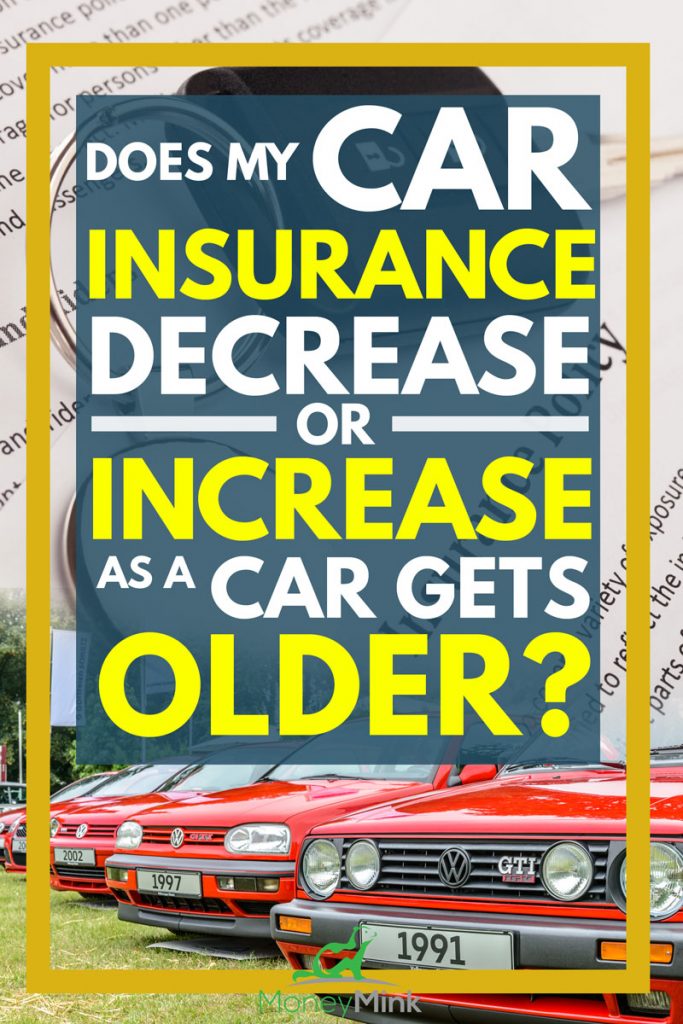Ever since most of us started driving, we believed older cars were cheaper on insurance. I mean, it only makes sense, right? The insurance should be less expensive on my 1999 F-150 then on my 2017 Toyota Sienna, right?
Driving an older car may cost you more for insurance than driving a newer one. This seems to defy all logic. If you have been watching your insurance rates waiting for them to drop is your car got older; you can probably stop now. If you haven't noticed it already, your rate may be higher.

We cover the essential points to help you understand why insuring your car costs what it does every month. We researched the best information available. What we found might surprise you.
Why Do Older Cars Cost More To Insure?
Insurance is more expensive on older cars for several reasons. The safety systems are not as up-to-date as the ones that are currently on the road. So unless your vehicle is exceptionally well maintained, it's more of a liability because of its age. As your car gets older, the amount that your insurance would payout if someone got hurt will not decrease. Medical care tends to increase every year, sometimes substantially.
How Is My Rate Calculated?
There may be portions of your policy that drop, but you will notice other parts of your plan will cost more. There are a set of equations that insurance companies use when they create policies; most of these are not public knowledge, but this is how it breaks down.
The reality of it is if you hit someone and they go to the ER. They claim your insurance. That bill gets higher for every year that your car has been in existence. Those costs can sometimes be astronomical. Accidental damage claims tend to climb on older vehicles, as well. As things fall apart, they become prone to damage. These are the fundamental reasons why older cars cost more to insure.
What Factors Affect Car Insurance Rates?
Here are the significant factors that contribute to your insurance rates. These are all factored into a final decision by your company. It helps them to decide on your risk factors.
- Age
- Driving History
- Experience
- Location
- Gender
- Marital Status
- Credit
- Claims History
- Who owns the vehicle
- What type of vehicle
- Discounts
Age
Age is one of the primary deciding factors when insuring a driver. I'm sure that we are all aware that teenage girls have a better rate than adolescent boys. Across the insurance spectrum, this goes for all women as opposed to men. That is until they have a reason for one of the other deriding factors come in.
It may sound a bit sexist, but the insurance companies believe that teenage to young 20s men are more likely to cause accidents and do things of a daredevil nature. This will cost them money in the long run. Relax, we all get a discount when we turn 25.
Driving History
Driving history plays a big part and how your insurance company treats you. If you maintain an account that is free from tickets and accidents, then you get a better rate. If you have a history of tickets and accidents, you can rest assured that your rate will remain high.
Experience
New drivers are a severe risk to insurance companies. As your experience behind-the-wheel grows, your rate will decrease. This establishes a track record. This will help to determine how much of a risk the insurance company is willing to take on you.
Location
Location plays a massive part in this. You may be wondering why. If you live in an area where meteorological conditions are going to cause the possibility of more accidents, you can bet that you're going to have to pay more for auto insurance. Living in California or Hawaii is going to lessen the amount of coverage that you have to pay due to weather. Whereas if you live in the Upper Midwest or on the east coast of the United States, snow and ice are going to make you more prone to having accidents bus driving your rate higher.
Gender
As we covered earlier, gender plays a part in this too. Traditionally women pay less in auto insurance than men do. This has nothing to do with age-old stereotypes. Historically men are willing to take more risks than women behind the wheel.
Marital Status
Marital status plays a large part in this too. When we start driving, we look forward to being 25 years old when we get that big discount on our insurance rates. The reality is that you get a more substantial discount when you get married. For the insurance company, this establishes a point of being stable. You are less likely to take risks.
Credit Rating
Credit history has a lot to do with insurance rates. The company is taking a risk on you. They want to make sure that you are going to pay the money that you are supposed to pay to them for them to take that risk. If your credit history is lacking, you can bet that you're going to have to pay higher rating insurance.
Claims History
Claims history is also going to play a significant factor in your insurance rates. If you have a history of making claims against your insurance company, then companies are going to be less likely to cover you. If you do not have much claim history, then your rate is going to drop substantially.
Who Owns The Vehicle
If you own the car, you're going to pay a lower rate than if you have a vehicle financed. This is because most Finance companies require you to carry a higher policy so that they will be paid if there is an accident. Paying your car off is an excellent way to lower your rate.
What Type Of Vehicle
The type of vehicle that you drive is going to change your rate. If you drive a sports car, you're more than likely going to speed and or cause an accident; that's how the insurance company looks at it. If you drive a small commuter vehicle, you're less likely to speed and cause an accident, and you appear to be much safer.
Discounts
These are a great way to save money on your insurance policy. Many companies offer discounted rates for just about anything from being an excellent student to serving in the military; some of them are even based on where you currently work. Contact your company and find out if you qualify for any of these discounts, they may substantially lower your policy.
Should You Carry Full Coverage On An Older Car?
Many companies won't even allow you to carry full coverage auto insurance on an older car. This is because it's going to cost them very little to replace if something happens to it. Unless your vehicle is a bona fide classic car with much retail value, don't even consider full coverage auto insurance.
Does Insurance Go Down If You Own Your Car?
Insurance does go down if you pay off your car. If you own an older car, the insurance company only has to pay you for the cost of the vehicle should something happen to it. When you finance a vehicle, you're paying a higher premium so that if something happens to the car, the finance company is paid for it.
The biggest thing that you need to be concerned about when you're looking at your insurance rates is how big of a risk are you to your company. The best thing that you can do is contact your agent and find out if there is anything that you can do or programs that you can participate in to lower your rates effectively.
If you are up for renewal on your policy, another good possibility is talking to your agent and letting them know that you are looking around at other companies. Most companies will offer a loyalty discount to keep you. Just remember that safe drivers pay a lot less on auto insurance!



